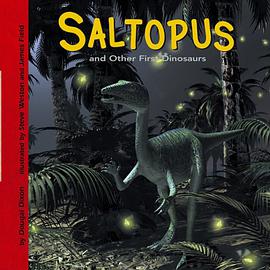

具体描述
foreword by Oliver Sacks Kurt Goldstein (1878-1965) was already an established neuropsychologist when he emigrated from Germany to the United States in the 1930s. This book, his magnum opus and widely regarded as a modern classic in psychology and biology, grew out of his dissatisfaction with traditional natural science techniques for analyzing living beings. It offers a broad introduction to the sources and ranges of application of the "holistic" or "organismic" research program that has since become a standard part of biological thought.Goldstein was especially concerned with the breakdown of organization and the failure of central controls that take place in catastrophic responses to situations such as physical or mental illness. But he was equally attuned to the amazing powers of the organism to readjust to such catastrophic losses, if only by withdrawal to a more limited range that it could manage by a redistribution of its reduced energies, thus reclaiming as much wholeness as new circumstances allowed.Goldstein's theses in The Organism have had an important impact on philosophical and psychological thought throughout the twentieth century, as evidenced in the work of Maurice Merleau-Ponty, Georges Canguilhem, Ernst Cassirer, and Ludwig Binswanger.
作者简介
Kurt Goldstein was born on November 6, 1878, the seventh of nine children (4). The Jewish family lived in Upper Silesia, today Poland. A quiet and shy boy, Kurt was known as "the professor" for his love of books. He began the study of philosophy when he entered the University, but soon took up medicine, receiving his M.D. in 1903.
sketch of Kurt GoldsteinWhile working at a psychiatric clinic in Königsberg from 1906 to 1914, he was disappointed at how little real treatment the patients received. So he began a life-long work of careful observation and treatment of individuals with psychiatric and neurological disorders. During World War I he built up what was to become a renowned clinic for brain-damaged soldiers, which he directed until 1930. He published widely and was a well-known and respected figure, not only in the international neurological community, but also among psychologists and philosophers, interacting primarily with Gestalt psychologists and phenomenologists.
When Hitler took power in 1933 Goldstein—a Jew—was briefly jailed and then forced to leave the country. The Rockefeller Foundation supported him for a year in Amsterdam. During this year he wrote his monumental work Der Aufbau des Organismus, published a year later in Germany and in 1939 in America as The Organism (1). This book, written by the fifty-five-year-old Goldstein, was the mature fruit of decades of work.
Goldstein emigrated to the United States in 1935, where he lived and worked until his death in 1965. He never felt quite at home in America or in the English language, although he became an American citizen in 1940. Nonetheless Goldstein remained highly productive and worked at various universities and clinics—Columbia, Harvard, Tufts, Brandeis—until shortly before his death.
Robert Ulich, a Harvard professor and colleague, described a visit to the elderly Goldstein:
He looked at the mystery of individual being as embedded in the greater mystery of the totality of Being. The visible and comprehensible in the cosmos of things pointed, so he thought, at the invisible and incomprehensible sources of the creation, and he fully accepted the dictum of Goethe (who was to him the consummation of wisdom) that we should courageously explore the explorable but stand in awe before the inexplorable.... I left him, feeling inspired at having been in the presence of a great man, a man whose insight and mature serenity had enabled him to combine into a noble synthesis the many antitheses of human existence. Goethe, so it seemed to me, had returned to him. I heard later that he often asked his cousin to read to him from Goethe's works. (5)
Kurt Goldstein died on September 19, 1965.
目录信息
读后感
评分
评分
评分
评分
用户评价
这本书,坦白说,读起来就像是漫步在一座被时间遗忘的迷宫里,每一步都充满了意想不到的转折和令人屏息的发现。作者构建的世界观极其宏大,初读时可能会感到有些吃力,因为信息的密度实在太高,仿佛每一页都塞满了哲学思辨和复杂的社会结构分析。我花了相当长的时间才真正理清人物关系和事件的脉络。最让我印象深刻的是他对“秩序”与“混沌”之间微妙平衡的探讨。他并没有提供简单的答案,而是将读者直接抛入一个道德模糊的灰色地带,迫使我们去审视那些我们习以为常的信念体系。书中的语言风格极其精准,带着一种古典的庄重感,尤其是在描述那些宏大场景或内心挣扎时,那种笔力之沉雄,读来令人震撼。它要求读者全神贯注,任何一次分心都可能让你错过一个至关重要的暗示。完成阅读后,我感觉自己好像刚刚进行了一场马拉松式的精神远征,身体的疲惫感被内心深处涌现出的对世界更深层次的理解所取代。这本书无疑是为那些寻求深度、不惧怕复杂性的读者准备的饕餮盛宴。
评分说实话,这本书带给我的最大感受是“迷失”。不是那种情节上的迷失,而是哲学层面的深陷其中,仿佛作者挖了一个无底洞,然后邀请你一起跳下去。叙事结构极其碎片化,大量的闪回、梦境片段和看似无关紧要的旁白交织在一起,形成了一张巨大的、令人眼花缭乱的挂毯。如果你指望有一个清晰的线性时间轴来引导你,那恐怕会非常失望。我花了大量时间去解读那些象征性的符号和重复出现的意象,它们像幽灵一样在文本中游荡,提示着某种不祥的预兆。我个人觉得,这本书的魅力恰恰在于这种模糊性和多义性,它拒绝被单一的解释所定义。读完之后,我感到一种难以言喻的疲惫,因为我的思维已经长时间处于高负荷的解构状态。它更像是一部需要反复研读、在不同人生阶段会有不同体会的“文本圣经”,而不是一次性的娱乐消费品。
评分我必须强调,这本书绝对不是那种可以轻松翻阅的消遣读物。它像一块未被雕琢的巨石,棱角分明,充满了原始的力量感。作者似乎对人类社会运作的底层逻辑有着近乎病态的好奇心,他毫不留情地剖开了那些被我们用礼貌和习俗包裹起来的丑陋真相。阅读过程中,我好几次停下来,合上书本,只是为了消化刚刚吞下的那些尖锐的观点。文风是那种直白到近乎粗粝的风格,没有多余的修饰,每一个句子都像一枚精心打磨过的子弹,直奔主题。更值得称道的是,作者在探讨伦理困境时,展现了一种罕见的公正性,他没有站在任何一方去评判,而是搭建了一个巨大的辩论场,让读者自己去寻找立足之地。我个人认为,这本书的价值在于其强大的批判性思维训练价值,它能让你重新审视自己赖以生存的社会契约,那种醍醐灌顶的感觉,是其他很多作品无法给予的。
评分这是一部充满了实验精神的文学作品,大胆到近乎鲁莽。作者对于语言本身的探索达到了一个新的高度,他似乎在不断地试图打破传统句法和词汇的限制,创造出一种全新的表达方式。有些段落,我甚至需要逐字逐句地去“翻译”,才能理解其中蕴含的深层意义,这绝对是对读者语言驾驭能力的一次极限挑战。书中描绘的那个世界,技术与原始信仰达到了诡异的共存状态,这种“新野蛮主义”的氛围营造得极为成功,让人不寒而栗。但同时,作者在关键转折点上又插入了一些极度个人化、近乎日记体的情绪爆发,这使得冰冷的结构中透出了一丝人性微弱的火花,防止了整本书变成纯粹的智力游戏。总而言之,这是一本需要极高专注度和一定文学背景才能完全领会其精妙之处的作品,它挑战了阅读的常规,并最终提供了一种独特而震撼的审美体验。
评分这次的阅读体验,怎么说呢,简直是一场感官的狂欢,但同时又带着一丝难以言喻的疏离感。我得承认,起初我完全被那种独特的叙事节奏吸引住了,它时而急促如暴雨,时而舒缓得仿佛时间凝固,这种非线性的叙事手法,虽然考验耐心,但一旦适应了,便能感受到作者的匠心独运。书中对环境的描绘达到了令人发指的细致程度,你几乎能闻到空气中的霉味,感受到皮肤上爬行的微小生物的触感。然而,人物的情感深度却似乎被刻意压制了,他们更像是推动复杂机械运转的齿轮,而非有血有肉的个体。这使得我在情感上难以完全投入,更多的是以一种学术研究者的姿态去观察和分析。这本书的优点在于其无与伦比的想象力和对细节的执着,缺点可能就在于,它更偏向于展示一个精妙的“系统”,而非讲述一个动人的“故事”。对于那些追求纯粹情感共鸣的读者来说,可能会觉得有些冷峻和疏远。
评分读了anxiety部分。总体上从自己实际的诊疗经验出发,根据人的行为对不同状态下的有机体的不同价值分类。具体探讨从anxiety和fear的含义和关系入手。fear有明确的对象、合适的防御反应、固定的身体模式,能够通过环境分析消除。anxiety则相反。引发anxiety的因素是另一个重要话题,Goldstein将其解释为有机体对环境任务的无能为力带来的对自身存在的威胁。然后(和弗洛伊德的方法论思路几乎一模一样),通过uncanny来解释(人类和动物)婴儿的anxiety。但正如我们从婴儿身上看到的,与环境的格格不入并不会让人就此沉沦。Courage, is nothing but an affirmative answer to the shocks of existence。勇气与希望。
评分看看
评分看看
评分读了anxiety部分。总体上从自己实际的诊疗经验出发,根据人的行为对不同状态下的有机体的不同价值分类。具体探讨从anxiety和fear的含义和关系入手。fear有明确的对象、合适的防御反应、固定的身体模式,能够通过环境分析消除。anxiety则相反。引发anxiety的因素是另一个重要话题,Goldstein将其解释为有机体对环境任务的无能为力带来的对自身存在的威胁。然后(和弗洛伊德的方法论思路几乎一模一样),通过uncanny来解释(人类和动物)婴儿的anxiety。但正如我们从婴儿身上看到的,与环境的格格不入并不会让人就此沉沦。Courage, is nothing but an affirmative answer to the shocks of existence。勇气与希望。
评分读了anxiety部分。总体上从自己实际的诊疗经验出发,根据人的行为对不同状态下的有机体的不同价值分类。具体探讨从anxiety和fear的含义和关系入手。fear有明确的对象、合适的防御反应、固定的身体模式,能够通过环境分析消除。anxiety则相反。引发anxiety的因素是另一个重要话题,Goldstein将其解释为有机体对环境任务的无能为力带来的对自身存在的威胁。然后(和弗洛伊德的方法论思路几乎一模一样),通过uncanny来解释(人类和动物)婴儿的anxiety。但正如我们从婴儿身上看到的,与环境的格格不入并不会让人就此沉沦。Courage, is nothing but an affirmative answer to the shocks of existence。勇气与希望。
相关图书
本站所有内容均为互联网搜索引擎提供的公开搜索信息,本站不存储任何数据与内容,任何内容与数据均与本站无关,如有需要请联系相关搜索引擎包括但不限于百度,google,bing,sogou 等
© 2026 book.quotespace.org All Rights Reserved. 小美书屋 版权所有




















